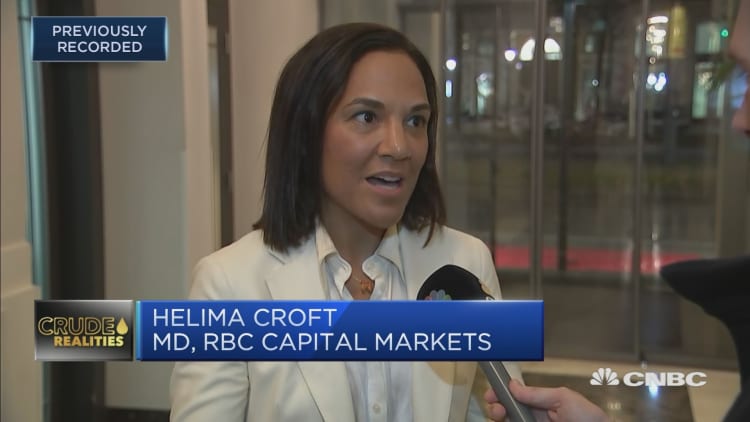OPEC kingpin Saudi Arabia has denied pursuing a deeper round of production cuts, one senior oil official told CNBC on Thursday, despite intense speculation the global oil-producing group was on the cusp of imposing further output curbs.
The oil-rich kingdom was widely considered to be pushing for other OPEC members to sign up for at least an additional 400,000 barrels per day (bpd) of production cuts. But, one anonymous Saudi oil official told CNBC on the sidelines of a meeting in Vienna, Austria that this was not the case — and Riyadh had not proposed any figures.
OPEC and non-OPEC allies — sometimes referred to as OPEC+ — have gathered in Vienna this week to discuss the next phase of their oil production policy. The 14-member group will hold talks on Thursday, before meeting with non-OPEC allies, including Russia, on Friday.
The energy alliance has reduced output by 1.2 million bpd since the beginning of the year. The current deal, which runs through to March 2020, replaced a previous round of production cuts that began in January 2017.

International benchmark Brent crude traded at $63.53 on Thursday afternoon, up more than 0.8%, while U.S. West Texas Intermediate (WTI) stood at $58.76, approximately 0.5% higher.
Oil prices have rallied in recent trading sessions, boosted by growing speculation about the potential for deeper production cuts.
However, Brent crude futures remain around 15% lower when compared to an April peak, with WTI down 12% over the same period.
— CNBC's Dan Murphy, Hadley Gamble and Emma Graham contributed to this report.


